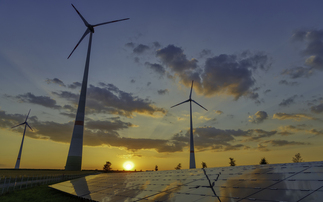
Some years ago, we had an ESG lightbulb moment. For all the good we managed to achieve through our micro-level corporate engagements, they would be meaningless if we failed to address existential market failures at the macro level.
The answer was to find a way of helping to reform the market: the playing field on which various financial participants act - from pensioners and savers, to institutional investors, banks and asset owners, to regulators, credit ratings agencies and index providers. But achieving this is no mean feat. To make it happen requires diplomacy, as well as deep systems knowledge and understanding - of how complex financial markets are, how it constantly evolves and changes, and an awareness of the dangers of unintended consequences.
As Donella H. Meadows, American environmental scientist and author of Thinking in Systems: A Primer, explains: "A system is a set of things - people, cells, molecules, or whatever - interconnected in such a way that they produce their own pattern of behaviour over time. We know a tremendous amount about how the world works, but not nearly enough. Our knowledge is amazing; our ignorance even more so. We can improve our understanding, but we can't make it perfect."
As stewards of our clients' capital, we have much of the knowledge, the influence and the foresight required to create lasting economic and social change. Finance flows through every sector and every industry; there is not a business or commercial activity that isn't touched by it. By definition, our influence sprawls and extends across them all. Investors are therefore uniquely positioned to instigate system-wide change.
However, Rick Stathers, senior ESG analyst and climate change specialist at Aviva Investors, believes most corners of finance underestimate the interconnected effects of climate change.
"Economists and investors simply assume that X degrees of heating will deliver Y per cent of GDP loss, and fail to factor in migration and value chain implications or the increasing risk that going beyond 1.5 degrees Celsius will trigger climate tipping points and increased heating," he explains.








